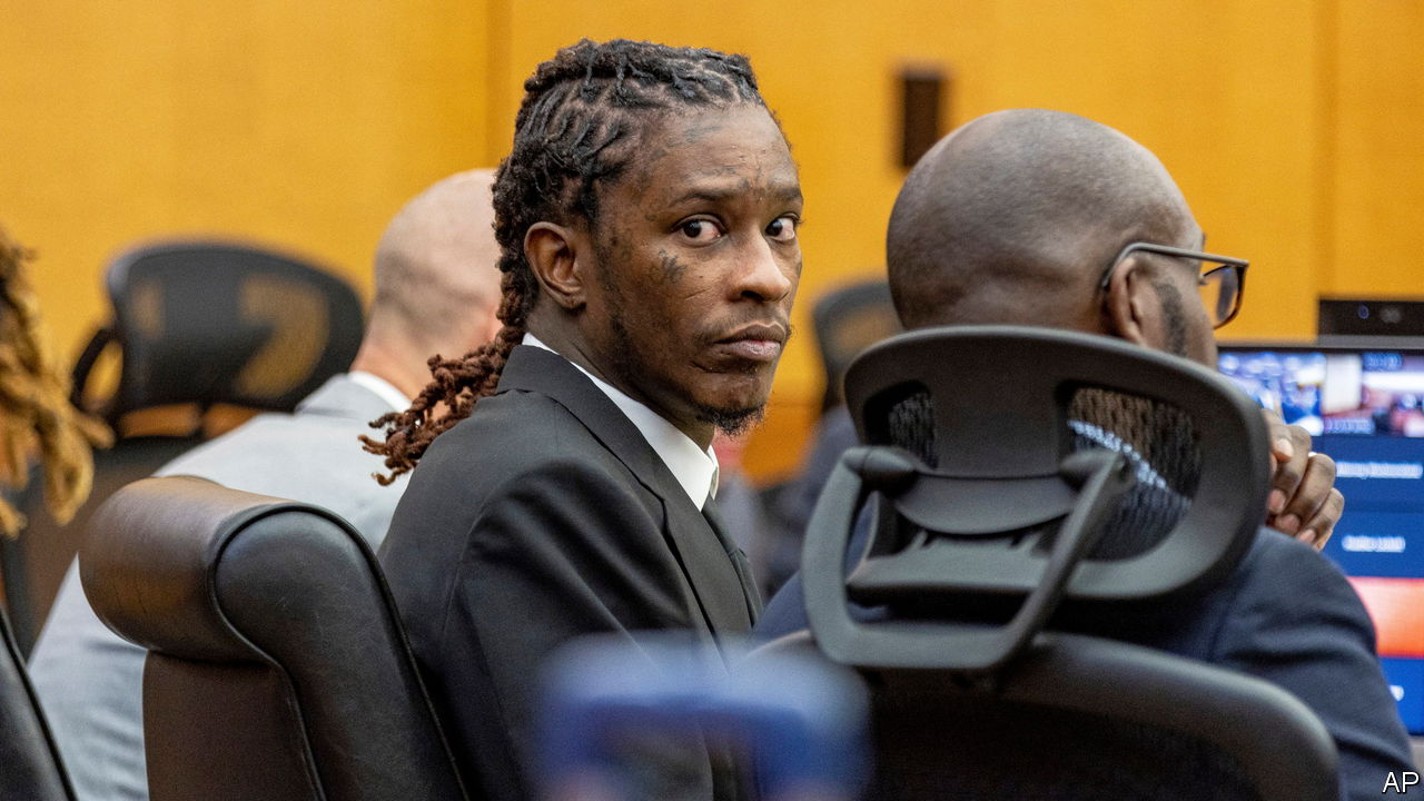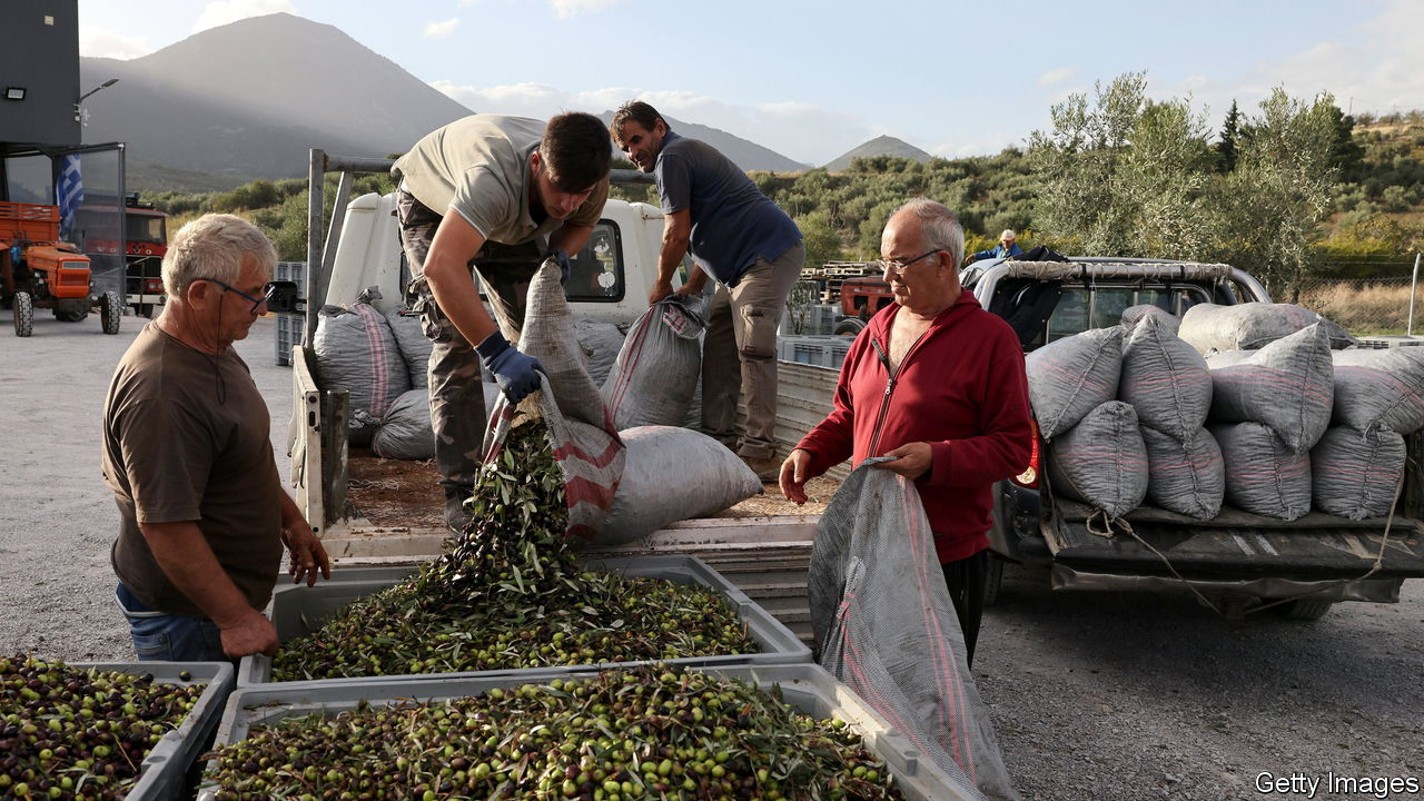Could the Democrats replace Joe Biden as their presidential candidate?
Worries about his chances of re-election are growing

WITH LESS than a year to go until America’s presidential election, the country looks poised for a rematch between Joe Biden and Donald Trump. Mr Biden says he wants a second term to “finish the job”. But, according to a recent poll, almost 40% of Democrats wish he would take not-so-early retirement. Mr Biden has been America’s oldest president since the day he took office. More than 55% of Americans disapprove of him. Most recent polls put him neck and neck with Mr Trump or slightly behind. Are the Democrats stuck with Mr Biden?
Technically, no. Although he is the presumptive nominee, Mr Biden’s candidacy is not guaranteed until he wins the support of a majority of party delegates to its convention. Most delegates are political activists, local party leaders and the like, pledged to support a particular candidate; the number allocated to each candidate is determined through primary elections and caucuses. The rest are made up of the Democratic Party establishment. Primary season begins with New Hampshire, on January 23rd, and runs until early June. In August delegates will gather at the Democratic convention in Chicago to cast votes on behalf of their state or territory.
But the president has an almost insurmountable advantage. He has the campaigning machinery of the Democratic National Committee behind him, and the support of virtually every senior figure in the party. Parties almost always renominate their incumbent president without difficulty. But after strong primary challenges two presidents, Lyndon Johnson and Harry Truman, abandoned bids for re-election. Mr Biden benefits from the absence, currently, of any viable challenger. The only Democrats running against him are Marianne Williamson, an author of self-help books, and Dean Phillips, a little-known distilling millionaire and Democratic congressman from Minnesota; both barely register in the polls. Kamala Harris, his vice-president, suffers from even worse approval ratings than Mr Biden. Two-thirds of Democrats who say the president should not run again have no idea who should replace him. Among the other third, Gavin Newsom, the governor of California, is the most popular choice. But he is thought to be keeping his powder dry for a run in 2028.
Even if a strong contender decides to enter the race against Mr Biden, they would already be behind. With each passing week more states close their primaries to new candidates. Deadlines in states with important early primaries, such as Nevada, South Carolina and Michigan, have already passed. Late candidates miss both the opportunity to win delegates in those states, and the important fundraising and media-coverage potential that comes with early momentum. Taking a swift lead does not guarantee a nomination—as Mr Biden proved when he bested Bernie Sanders, an early front-runner in 2020—but not being part of the race from the start makes things much harder for a candidate who has spent less time and money getting voters on side. Even Mike Bloomberg could not make his late entry to the 2020 race work despite not running against a Democratic incumbent and pouring more than 1bn dollars into his bid.
The other scenario is that Mr Biden drops out without a serious challenger. But the time when he might reasonably have decided against a re-election bid was in early 2023, which would have allowed other candidates to run campaigns. If he dropped out now it would create a crisis in the Democratic Party, so the chances that he will do so—barring a serious health problem—are vanishingly slim. If it did happen, Mr Biden’s delegates would have to vote for someone else at the convention in Chicago.
Mr Biden may not seem the best choice for the Democrats in 2024 to many. But at this stage, his party has little room to manoeuvre. An internal battle so close to the election could severely weaken the party ahead of a seemingly existential contest against Mr Trump. When Truman and Johnson withdrew their bids for re-nomination, the Democrats went on to lose the general election. ■
More from The Economist explains

How art is used against artists, like Young Thug, in court
Rap music, more than any other creative form, is used as evidence of other crimes

Why the price of olive oil is soaring
Climate change, export controls and soaring fertiliser costs leave a bitter taste

Who are the Houthis, the group attacking ships in the Red Sea?
The Yemeni rebel group is operating on the fringes of the Israel-Hamas war